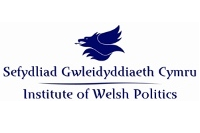Special podcast on the 2016 National Assembly Election

Institute of Welsh Politics logo
04 May 2016
On the eve of the fifth election to the National Assembly for Wales, experts from the Institute of Welsh Politics at Aberystwyth University have recorded a special podcast which reflects on the campaign seen over the past few weeks and also discusses what are the prospects for each of the political parties.
Among the issues covered in the podcast are:
Can Labour secure enough seats to be in a majority in the Assembly following the election?
Will it be Plaid Cymru or the Conservatives who emerge as the second largest party following the election?
Will we see UKIP gaining its first seats in the Assembly?
And what are the prospects for the Liberal Democrats and Green Party?
The podcast features the following experts from the Institute of Welsh Politics at the Department of International Politics at Aberystwyth University: Catrin Wyn Edwards, Matthew Rees, Dyfan Powel and Huw Lewis.
Huw Lewis, Acting Director of the Institute of Welsh Politics said:
“Tomorrow, the people of Wales will cast their votes in the fifth election to the National Assembly for Wales. While the Brexit referendum has undoubtedly overshadowed much of the campaign period, all of the Welsh parties have now presented their manifestos, their leaders have participated in a series of television debates and their candidates have been out canvasing across the country.
“This podcast provides a discussion of key themes such as the nature of the campaigns conducted by the parties, the prospects for each of the party leaders and also the nature of the results that we can expect and their implications for who forms the next Welsh Government.”
The Institute of Welsh Politics (IWP) was established within the Department of International Politics in 1997. It has proven to be a highly successful initiative. The IWP is now widely acknowledged to be pre-eminent in the study of Welsh politics, and is internationally recognised as an important research centre on political regionalism and sub-state nationalism.
The IWP has established a very strong profile within Wales and outside. It has become widely recognised within the news media, within the policy community in Wales and in London, and also by the academic community, as the central locus of expertise on devolved politics and government.
https://www.aber.ac.uk/en/interpol/research/research-centres-and-institutes/iwp/



